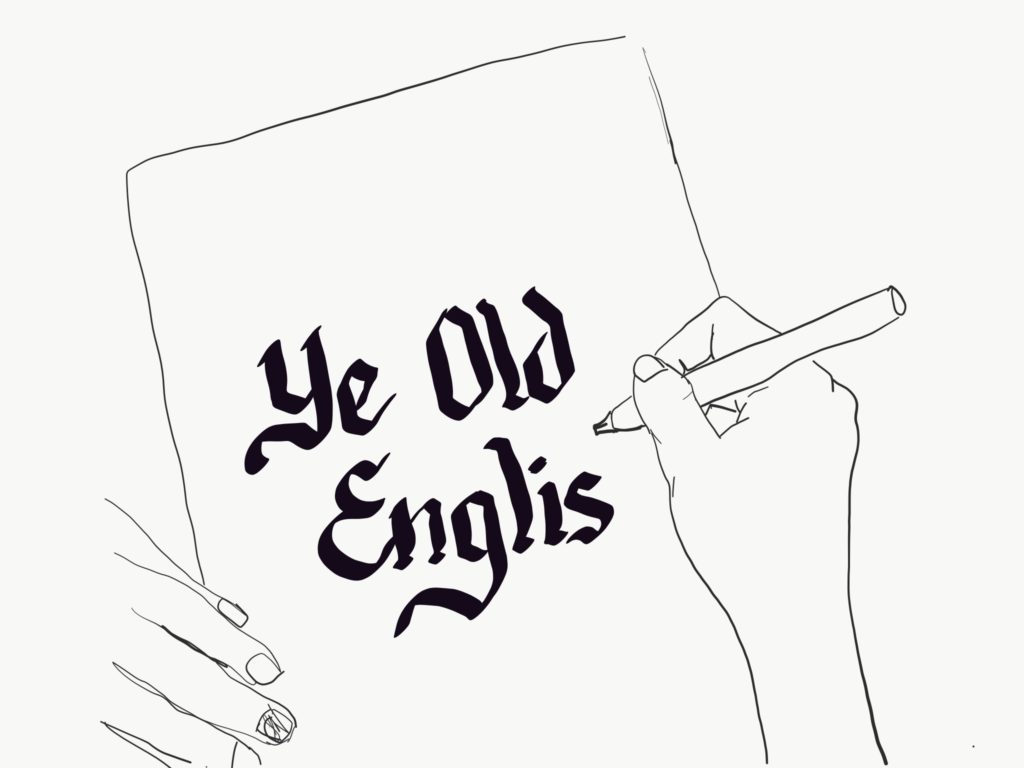Wedding celebrations are memorable events.
As a guest, you want to make a good impression and wear clothes that suit the occasion out of respect for the newlyweds. (And if you’re single, it’s an opportune time to turn a man’s head. And why not? You look amazing in that dress, girl!)
For the bride to be, so much care and detail goes into orchestrating the wedding day, starting with the invites.
I felt calligraphy would look elegant on my wedding invitations. My ink stained fingers bore witness to the hours I spent hand writing in Ye Old English Font.

Mind you, I split the workload with a dear friend for which I will always be thankful. (Thanks again, Joan.)
If fancy calligraphy wasn’t a strong enough hint as to the nature of the occasion, I also stated directly on the invitations that dress was formal.
On the day of my wedding, a man in a faded pair of jeans and sneakers approached my reception table. I suspected that he was a maintenance worker or a gardener wanting to leave a message.
He extended his hand toward my husband. As I watched their wrists bop up and down, that was the moment it dawned on me that Mr Faded Jeans was indeed an official guest. *Sigh*
Not that I’m a snob or anything, but it was a formal wedding, not a beach wedding, nor a stand in line at the local courthouse wedding, nor a shot gun wedding, but a traditional wedding.
Oh well, at least he was wearing a pair of pants.
Biblical Wedding Traditions
I like the way Jesus thought about this. Wear wrong clothes to a wedding—BOOM—out the door, see you never.
Read Matthew 22:1-14. It’s a parable about a King, a Prince, and a wedding.
It’s not your typical wedding, unless you’re related to the mob or have connections to a prominent crime syndicate. There’s treachery, rebellion, toxic emotions and even cold-blooded murder.
The royal guest list holds people of noble rank and stature. Messengers on horseback send the first round of invitations to the furthest reaches of the king’s realm. The invitations are for a grand wedding for the king’s son.
This spectacular royal celebration would last for seven days.
Guests must plan to either close their shops and cease trading, or delegate trusted servants to take charge while they are at the wedding. Property owners could delegate the management of their farms and livestock to their employees in their absence.
The honour of receiving an invite from their king and the fear of causing offense should have motivated these high-ranking invitees to attend.
There was sufficient time to make plans to join in the wedding feast, yet these honoured guests refuse to attend.
Weeks roll by.
It is now the stated hour for the wedding ceremony, the sweet aroma of roasted oxen and lamb wafts in the air. As custom dictates, the king sends a second invitation requesting these same guests to come.
Again, they ignore the king’s invitation, a scandalously rude act that reflects their disloyalty to him. They intentionally snub the party to continue running their businesses.
Others have evil in their hearts and in an act of outright treason, murder the king’s messengers.
The shedding of innocent blood incites the king’s wrath. He retaliates and burns their city to the ground.
Now, a party is not a party without guests. What an absolute disgrace for the King’s son not to have people present at his own reception.

As a last resort, the king invites everyday people, the commoners and the peasants, to attend the royal feast.
The Right Wedding Outfit
As was the custom, the host provides garments for all his wedding guests. They each receive a robe to cover their rank and status.
Now the guests are free to mingle amongst each other as equals.
The king enters the wedding hall. It’s bustling with guests laughing, eating sumptuous food, listening to the music, enjoying the entertainment and milling about in easy conversation.
His eyes narrow on one guest who is clearly underdressed. Incredulous, the king asks him, ‘Where is your wedding garment?’
There’s no response, only stone cold silence.
The king is in no mood for further disrespect. This guest has defiantly refused to wear his wedding garment on purpose. Clearly, he is displaying extreme contempt for both the king and his son.
The king acts swiftly against this rebel. Bound hand and foot, he is thrust outside into the darkness.
The Right Relationship
It’s not hard to figure out who’s who in this parable, which enraged the religious elite who understood Jesus was pointedly accusing them of their sins.
The honoured guests in this parable are those from the nation of Israel who rejected Christ. The messengers are the prophets killed for proclaiming the truth.
The commoners and the peasants represent the gentiles—or non-Jews.
The wedding garments represent God’s righteousness.
In His kindness, God provides for us the right clothes for entrance into His kingdom, His party—Heaven.
I will greatly rejoice in the LORD, my soul shall be joyful in my God; for the hath clothed me with the garment of salvation, he hath covered me with the robe of righteousness, as a bridegroom decketh himself with ornaments, and as a bride adorneth herself with her jewels Isaiah 61:10
Upon our salvation, our sins are imputed to Christ, and Christ’s righteousness is transferred to us.
We are clothed in his righteousness alone, faultless to stand before the throne, as the old hymn says.
We are welcomed into God’s kingdom through a right relationship with his Son.
For he hath made him to be sin for us, who knew no sin; that we might be made the righteousness of God in him. 2 Cor 5:21
The gospel is open to everyone regardless of rank, station, economic status, and ethnicity, from the tech savvy mogul whose fortune runs in the millions, to the girl selling fragrances at the cosmetic section.
Come join the feast . . . this is your invitation.
Bibliography
Bowers, J. 2014, ‘Don’t be a Wedding Crasher’, Desiring God. Retrieved 30 April 2021 from
https://www.desiringgod.org/articles/dont-be-a-wedding-crasher
Henry, M. 1961, Commentary on the Whole Bible, Zondervan, Michigan.
Keener, C.1993, The IVP Bible Background Commentary New Testament, IVP Academic, Illinois.
Pfeiffer C,F. 1990, The Wycliffe Bible Commentary, Moody Publishers, Illinois.
Thomas, K. No date specified, ‘The Parable of the Wedding Feast’, Group Bible Study. Retrieved 30 April 2021 from
https://www.groupbiblestudy.com/the-parable-of-the-wedding-feast


